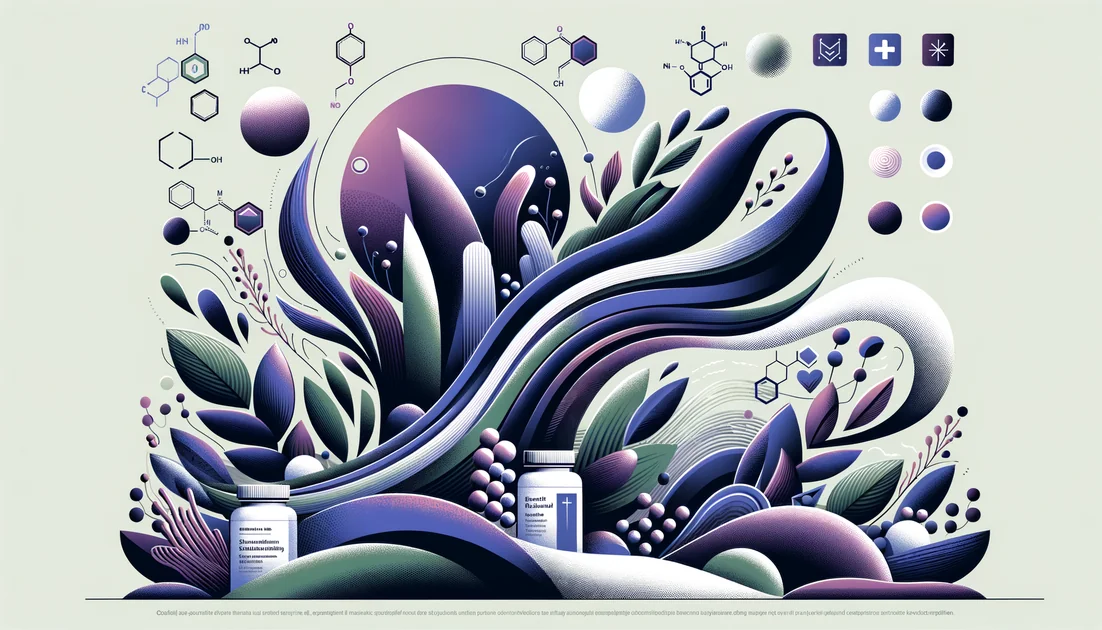
Top 8 Evidence-Based Recommendations
We read 30+ meta-analyses and randomized trials on hypertrophy and strength—then ranked by effect size, safety, cost, and practicality. No affiliate picks. Just what grows muscle, dose by dose.
Quick Reference Card
Creatine monohydrate: 3–5 g daily
Whey or quality protein: 20–40 g per meal; 1.6–2.2 g/kg/day
EAAs (not BCAAs): 5–10 g around training
Omega-3 (EPA/DHA): 1–3 g/day
Citrulline malate: 6–8 g, 40–60 min pre-workout
Ashwagandha: 300 mg twice daily
Ranked Recommendations
#1Creatine MonohydrateTop Choice
The one that actually adds reps, loads, and lean mass
Dose: 3–5 g daily (optional load: 20 g/day split for 5–7 days, then 3–5 g/day)
Time to Effect: 7–28 days (as muscles saturate)
How It Works
Boosts phosphocreatine to recycle ATP so you can do more hard reps; repeated higher training volume drives hypertrophy. Also draws water into muscle cells, a growth-friendly signal. [1]
Evidence
Multiple RCTs and recent meta-analyses show creatine + lifting increases lean mass and regional hypertrophy versus placebo; long-term use is well supported and safe. [1]
Anyone lifting 2–5+ days/week; vegetarians/vegans often see bigger bumps
Benign water-weight increase; hydrate. No proven kidney harm in healthy people—if you have kidney disease, ask your clinician first. [1]
Monohydrate is king—other forms (HCl, nitrate, buffered) aren't superior for gains. Take with carbs/protein if you want, but timing isn't critical. [^17^18^19]
#2Whey (or high-quality protein powder)Strong Alternative
Hit your daily protein target—consistently
Dose: 20–40 g per serving; total daily protein ~1.6–2.2 g/kg (in 3–5 meals)
Time to Effect: Weeks (as lean mass accrues with training)
How It Works
Provides essential amino acids—especially leucine—to trigger mTOR and muscle protein synthesis; repeat stimulations build muscle. [^2^3]
Evidence
Meta-analysis: protein supplementation augments resistance-training gains in lean mass, with diminishing returns beyond ~1.6 g/kg/day. ISSN position stand supports 1.4–2.0 g/kg/day for lifters. [^2^3]
People who under-eat protein or want convenient post-workout nutrition
Dairy sensitivities—use whey isolate or a quality EAA/vegan blend
Pre-sleep casein (30–40 g) can boost overnight MPS; spread 20–40 g protein doses every 3–4 h. [3]
#3Essential Amino Acids (EAA)Worth Considering
The minimalist way to flip the 'build muscle' switch
Dose: 5–10 g around training (aim ≥2–3 g leucine per dose)
Time to Effect: Minutes for MPS; weeks for visible gains
How It Works
EAAs—especially leucine—activate mTOR and MPS even when total calories are low; unlike BCAAs alone, EAAs supply all building blocks. [^3^12]
Evidence
Human trials show LEAA/EAA acutely stimulate MPS; leucine alone or BCAAs alone are inferior for hypertrophy over time versus complete protein/EAA. [^3^12^15]
Cutting phases, low-appetite days, or dairy-free lifters needing leucine-rich hits
May taste bitter; can affect blood sugar meds—check with your clinician
If your protein meal is small, add 5 g EAA to reach the leucine threshold (~2–3 g). [3]
#4Omega-3 (EPA/DHA fish oil)
Small strength boost, joint-friendly recovery—especially if older
Dose: 1–3 g/day combined EPA+DHA with meals
Time to Effect: 8–12 weeks
How It Works
Incorporates into muscle cell membranes, potentially enhancing anabolic signaling and reducing inflammation, aiding strength adaptations. [4]
Evidence
Recent meta-analysis: omega-3 + resistance training improves strength (small effect), with mixed effects on muscle mass—benefits clearer in older adults. [^4^5]
Lifters 40+ or with low fish intake; cutting phases with achy joints
May increase bleeding risk with anticoagulants—ask your clinician
Pair fish oil with your highest-fat meal for absorption; keep capsules refrigerated to reduce fish burps.
#5Citrulline Malate
Squeeze extra reps today to grow tomorrow
Dose: 6–8 g 40–60 min pre-workout
Time to Effect: Single workout (acute)
How It Works
Raises arginine and nitric oxide to improve blood flow and ammonia clearance, delaying fatigue so you complete more quality reps/sets. [^6^7^8]
Evidence
Meta-analyses: small but significant increase in reps to failure in strength training; no direct strength increase, but more training volume is a realistic hypertrophy lever. [^6^7^8]
High-volume push/pull/legs days; pump-chasers
Some GI upset at full doses—split 4 g + 4 g if needed
Works best on multi-set, near-failure sessions at 60–80% 1RM. [6]
#6Ashwagandha (Withania somnifera)
Adaptogen with legit strength and size data
Dose: 300 mg root extract (KSM-66 or equivalent) twice daily
Time to Effect: 6–8 weeks
How It Works
May reduce exercise stress and modestly raise androgens, supporting harder training and recovery—netting more strength/size. [9]
Evidence
Double-blind RCT in novice lifters: +strength, +muscle size, -body fat vs placebo over 8 weeks. More trials needed, but signal is promising. [9]
High-stress lifters or beginners starting structured programs
Autoimmune/thyroid issues or sedatives—consult your clinician first
Take with meals to limit GI upset; pair with creatine for complementary mechanisms.
#7Vitamin D (if deficient)
Not a mass builder—unless you're low
Dose: 1000–4000 IU/day cholecalciferol (adjust to blood work)
Time to Effect: 8–12 weeks to correct deficiency
How It Works
Vitamin D receptors exist in muscle; deficiency impairs function. Correcting low 25(OH)D may aid strength, especially in older/indoor athletes. [^10^11^16]
Evidence
Meta-analyses: small strength benefits mainly when baseline 25(OH)D is low; no consistent effect on muscle mass or power in replete athletes. [^10^11^16]
Indoor lifters, darker skin at high latitudes, winter months
Avoid megadoses; hypercalcemia risk—test, don't guess
Take with a fat-containing meal; re-test 25(OH)D after ~12 weeks.
#8HMB (β-hydroxy β-methylbutyrate)
Cutting and detraining insurance—not a mass driver in trained lifters
Dose: 3 g/day (as Ca-HMB)
Time to Effect: 2–4 weeks
How It Works
Leucine metabolite that may reduce muscle protein breakdown; useful when growth signals are low (bed rest, aggressive cuts). [13]
Evidence
Meta-analysis in trained/competitive athletes: trivial, non-significant effects on strength and lean mass; utility is context-specific. [13]
Older adults in rehab or athletes during forced layoffs/cuts
Save your money if you're already training and eating well
If you do use it, pair with 1.6–2.2 g/kg/day protein and creatine—don't rely on HMB alone.
Common Questions
What's the single best supplement for muscle growth?
Creatine monohydrate. It reliably increases training volume/strength and lean mass in lifters at 3–5 g/day. [1]
How much protein do I actually need to grow?
About 1.6–2.2 g/kg/day, split into 20–40 g servings every 3–4 h, each with ~2–3 g leucine. [^2^3]
Are BCAAs worth it for bulking?
No. They may reduce soreness markers, but they don't build muscle like protein or EAA. [^12^14]
Do I need to load creatine?
Loading works faster (20 g/day for 5–7 days), but daily 3–5 g reaches the same saturation in a few weeks. [1]
Which supplements work fast vs slow?
Fast: citrulline (same-day reps), creatine (1–4 weeks). Slow: omega-3, ashwagandha, vitamin D (if low). [^1^4^6^9^10]
Timeline Expectations
Fast Results
- •
Creatine monohydrate
- •
Citrulline malate pre-workout
Gradual Benefits
- •
Protein to 1.6–2.2 g/kg/day
- •
Omega-3 EPA/DHA
- •
Vitamin D (if deficient)
Combination Strategies
The Big 3 Growth Stack
Components:Creatine monohydrate 3–5 g/day + Whey or 20–40 g protein per meal + Citrulline malate 6–8 g pre-workout
Creatine increases training capacity over weeks; whey ensures you hit the ~1.6 g/kg/day protein sweet spot; citrulline adds reps today—together they maximize volume and recovery, the two biggest hypertrophy levers. [^1^2^6]
Daily: creatine anytime. Training days: whey within 2 h pre/post; citrulline 40–60 min pre.
Masters (40+) Strength Saver
Components:Omega-3 (EPA/DHA) 2–3 g/day + Protein to 1.6–2.2 g/kg/day + Vitamin D to repletion if low
In older adults, omega-3s show small strength benefits; adequate protein is essential; correcting low vitamin D supports function. [^4^2^10^11]
Daily with meals. Test 25(OH)D and adjust vitamin D dose; keep protein evenly spaced.
Stress-Resilient Gains
Components:Ashwagandha 300 mg twice daily + Creatine 3–5 g/day + EAA 5–10 g on low-protein meals
Ashwagandha can improve training quality under stress; creatine boosts output; EAAs ensure MPS when appetite or time is tight. [^9^1^3]
Ashwagandha with breakfast/dinner; creatine anytime; EAAs pre- or post-lift when meals are small.
You might also like
Explore more of our evidence-led investigations, comparisons, and guides across every article style.

Momentous (Project One Nutrition, Inc. dba Momentous)
Momentous is a testing-first supplement brand with real R&D credentials—and recurring complaints about price and subscriptions

Uridine 5'-Monophosphate (UMP) vs Triacetyluridine (Uridine Triacetate, TAU)
Pick UMP for everyday, lower-cost stacking with DHA/choline; pick TAU if you specifically need maximum systemic uridine delivery and have medical oversight. Evidence for outcomes favors UMP-containing formulas; TAU wins on bioavailability. [6][7][1][2]


Betaine HCl
You live in an age of acid blockers, yet some people reach for acid itself. The capsule in your palm—betaine hydrochloride—promises to do what your stomach won't: up the acid for just long enough to matter. How did a beet-derived molecule become a one-hour fix in a world obsessed with turning acid off?[1]


Tocotrienols
The stealthier cousins of vitamin E—built with springy tails that move differently in cell membranes and behave differently in your body.











